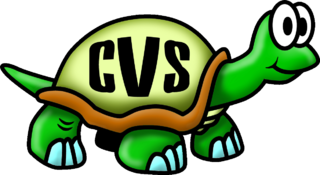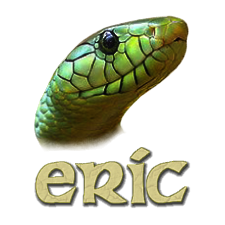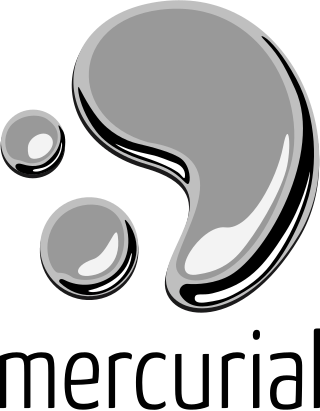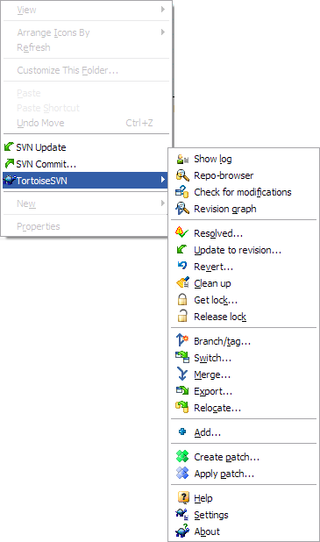
wxWidgets is a widget toolkit and tools library for creating graphical user interfaces (GUIs) for cross-platform applications. wxWidgets enables a program's GUI code to compile and run on several computer platforms with minimal or no code changes. A wide choice of compilers and other tools to use with wxWidgets facilitates development of sophisticated applications. wxWidgets supports a comprehensive range of popular operating systems and graphical libraries, both proprietary and free, and is widely deployed in prominent organizations.

Windows Forms (WinForms) is a free and open-source graphical (GUI) class library included as a part of Microsoft .NET, .NET Framework or Mono, providing a platform to write client applications for desktop, laptop, and tablet PCs. While it is seen as a replacement for the earlier and more complex C++ based Microsoft Foundation Class Library, it does not offer a comparable paradigm and only acts as a platform for the user interface tier in a multi-tier solution.

Git is a distributed version control system that tracks changes in any set of computer files, usually used for coordinating work among programmers collaboratively developing source code during software development. Its goals include speed, data integrity, and support for distributed, non-linear workflows.

TortoiseCVS is a CVS client for Microsoft Windows released under the GNU General Public License. Unlike most CVS tools, it includes itself in Windows' shell by adding entries in the contextual menu of the file explorer, therefore it does not run in its own window. Moreover, it adds icons onto files and directories controlled by CVS, giving additional information to the user without having to run a full-scale stand-alone application.

eric is a free integrated development environment (IDE) used for computer programming. Since it is a full featured IDE, it provides by default all necessary tools needed for the writing of code and for the professional management of a software project.
A tortoise is a land-dwelling reptile, protected by a shell, of the order Testudines.

Mercurial is a distributed revision control tool for software developers. It is supported on Microsoft Windows and Unix-like systems, such as FreeBSD, macOS, and Linux.
CVSNT is a version control system compatible with and originally based on Concurrent Versions System (CVS), but whereas that was popular in the open-source world, CVSNT included features designed for developers working on commercial software including support for Windows, Active Directory authentication, reserved branches/locking, per-file access control lists and Unicode filenames. Also included in CVSNT were various RCS tools updated to work with more recent compilers and compatible with CVSNT.

TortoiseSVN is a Subversion client, implemented as a Microsoft Windows shell extension, that helps programmers manage different versions of the source code for their programs. It is free software released under the GNU General Public License.
In software development, version control is a class of systems responsible for managing changes to computer programs or other collections of information such that revisions have a logical and consistent organization. The following tables include general and technical information on notable version control and software configuration management (SCM) software. For SCM software not suitable for source code, see Comparison of open-source configuration management software.

GNU Bazaar is a distributed and client–server revision control system sponsored by Canonical.
This is a comparison of notable free and open-source configuration management software, suitable for tasks like server configuration, orchestration and infrastructure as code typically performed by a system administrator.
A comparison of Subversion clients includes various aspects of computer software implementations of the client role using the client–server model of the Subversion revision control system.
Azure DevOps Server is a Microsoft product that provides version control, reporting, requirements management, project management, automated builds, testing and release management capabilities. It covers the entire application lifecycle and enables DevOps capabilities. Azure DevOps can be used as a back-end to numerous integrated development environments (IDEs) but is tailored for Microsoft Visual Studio and Eclipse on all platforms.

TortoiseGit is a Git revision control client, implemented as a Windows shell extension and based on TortoiseSVN. It is free software released under the GNU General Public License.
Plastic SCM is a cross-platform commercial distributed version control tool developed by Códice Software Inc. It is available for Microsoft Windows, Mac OS X, Linux, and other operating systems. It includes a command-line tool, native GUIs, diff and merge tool and integration with a number of IDEs. It is a full version control stack not based on Git.

The Windows Package Manager is a free and open-source package manager designed by Microsoft for Windows 10 and Windows 11. It consists of a command-line utility and a set of services for installing applications. Independent software vendors can use it as a distribution channel for their software packages.
Perforce Software, Inc. is an American developer of software used for developing and running applications, including version control software, web-based repository management, developer collaboration, application lifecycle management, web application servers, debugging tools and Agile planning software.

The KDE Gear is a set of applications and supporting libraries that are developed by the KDE community, primarily used on Linux-based operating systems but mostly multiplatform, and released on a common release schedule.












